But Brace, NPR Will Red-Bait Your Dance Card
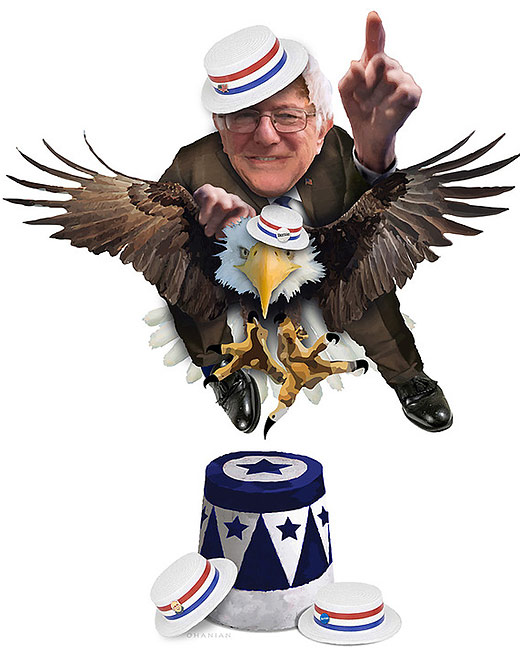
Dance with the one that brought you – BERNIE! As Bernie changed the national dialogue on critical issues and transformed large swaths of the Democratic Party, that’s my bid for his slogan.
It won’t be NPR’s. NPR political reporting isn’t evolving, it’s devolving, already tipping its hand that it’s out to sink Bernie, as it did its best to in 2016, taking every opportunity then to slip in the knives of Hillary talking points. When Bernie announced last week, I heard a public radio newscaster remind us that Bernie ran in 2016, winning several primaries. Several? Somebody must have jumped him, I didn’t hear that repeated. Now something more insidious than dopey has come along.
A friend, Elliott Negin, knows the treacherous territory of Washington. You can catch samples of his splendid insights, for the Union of Concerned Scientists here, and for the Huff Post here.
After hearing this politics segment on NPR’s Weekend Edition Saturday, Feb. 23, Elliott wrote a social media post I’d like to share:
Did NPR Red-Bait Bernie Sanders this Morning?
I just sent this email to host Scott Simon and reporter Ron Elving:
Ron and Scott: In a two-way between the two of you this morning, Ron confused socialism with communism.
Referencing Bernie Sanders announcing his presidential bid, Ron said: “The phrase democratic socialist that Sanders uses a lot — that has quite a few fans, especially among younger voters, who seem to take this word socialist in stride. Older voters still remember the years when to be a socialist was to be on the wrong side of the Cold War in many people’s minds. And voters of all ages will be taking part in those primaries and caucuses starting in less than a year.”
Older voters still remember the years when a COMMUNIST was to be on the wrong side of the Cold War, not a socialist. Sanders’ socialism has nothing to do with the Soviet Union or China and everything to do with the social democracies of Europe and Canada.
In the mid- to late-1980s, I was the editor of Nuclear Times , a peace and disarmament magazine that covered the Cold War face-off between the United States and the Soviet Union, and we would never call the USSR a “socialist” country. Sweden, da. Russia, nyet. After my stint at Nuclear Times, I joined the NPR foreign desk as an editor.
Either you guys don’t know your history or you are deliberately redbaiting Sanders.
Unfortunately other reporters and columnists have done the same thing. In October 2015, for example, The Washington Post ran a front page story on Sanders that included this passage:
“Twenty-four years after the end of the Cold War, many Americans no longer associate socialism with fear or missiles — or with failure, food lines or empty Soviet supermarkets. A word that their elders saw as a slur had become a blank, open for Sanders to define.”
I wrote a letter to the editor to correct the record, pointing out that the “Soviet system of government was communism, not socialism.” My letter went on to explain that the residents of social democracies in Europe and Canada on average fare better than Americans.
It is critical for news organizations to accurately define what Sanders is talking about when he says that he is a democratic socialist, especially since President Trump and other Republicans are now associating socialism with the debacle in Venezuela.
It’s shocking that NPR could get this wrong. I expect more from you guys.
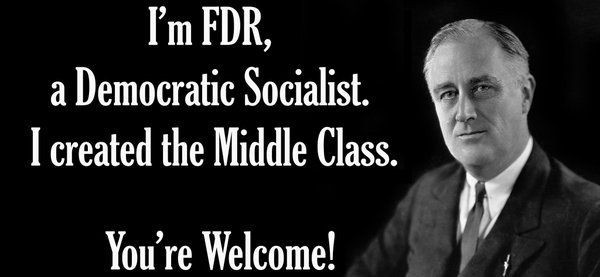
Analyze the points packed into the Sanders portion of the NPR segment below and the packaged propaganda shines through.
SIMON: Senator Bernie Sanders entered the 2020 race for president this week – I think $6 million he raised within 48 hours or something. But he touched off a recurrent question about if he’s really a Democrat in all ways, maybe. This week, he refused to call Nicolas Maduro a dictator.
KALTENHEUSER: Everyone knows Bernie raised nearly 6 million, mostly small contributions, in 24 hours, with 600 grand of that in monthly pledges. Except Simon, who waters that impressive feat down, to “forty-eight hours or something.” Then he trots out the murky strawman of whether Bernie’s “really a democrat in all ways, maybe.” Simon elevates that to “a recurrent question”, nevermind Bernie’s pledge to run as a Democrat, his position in the Democratic leadership, his stumping like a circus trooper for Democratic Party candidates, and everything else in his history, not least his 2016 campaign. Simon then parrots the criticism of Floridians like Clintonite Donna Shalala that Bernie didn’t call Venezuela’s Maduro a dictator, as if Bernie secretly supports Maduro. There’s no elaboration that while Bernie is not beating the drum for opening the Pandora’s Box of military intervention, he is calling for free and fair elections in Venezuela. That’s hardly a subversive position, particularly when the mouths of the slippery axis of Trump, Bolton and Abrams publicly water for Venezuela crude. But Simon won’t even attempt such basic and responsible nuance. He just lets the smear float freely.
Does Simon really believe his own bullshit, or is it flowing from an NPR edict from top down? Is Simon auditioning for Chuck Todd and his merry band of Sabbath Gasbags? Inquiring minds want to know.
And now Elving takes the cue, undermining Berne’s prospects by implying Bernie is disingenuous and only feigning to be a Democrat because he’d like to be President. And, he’s been an independent! Never mind that he always caucused with the Democrats, and be sure to ignore he’s in the Democratic leadership. Just keep up the Orwellian suggestions of uncertainty about who Bernie really is, that he’s just playing the Democrats. Does Elving think the largest group of voters, self-identified independents, will take offense at independent labels?
ELVING: You know, terminology and labels are not ultimately where people live, but they can have meaning and effect when it comes to campaigns. We certainly saw that in 2016. Sanders only calls himself a Democrat when he’s seeking to be the party nominee for president. The rest of the time and in Congress, he calls himself an independent. And that may be more accurate.
KALTENHEUSER: Elliott already nicely addressed the red-baiting below, but also note the attempt to undercut Bernie’s prospects by driving an electorate age wedge on Bernie’s secret identity. I think much of that age wedge is a work in progress by pundits in search of a comment. If enough say it, it must be true.
ELVING: The phrase democratic socialist that Sanders uses a lot — that has quite a few fans, especially among younger voters, who seem to take this word socialist in stride. Older voters still remember the years when to be a socialist was to be on the wrong side of the Cold War in many people’s minds. And voters of all ages will be taking part in those primaries and caucuses starting in less than a year.
Christ on a bicycle! Trump’s writers are moonlighting at NPR! They at least seem kissing cousins. Their common purpose ultimately juices the risks of getting the same result as the 2016 fiasco.
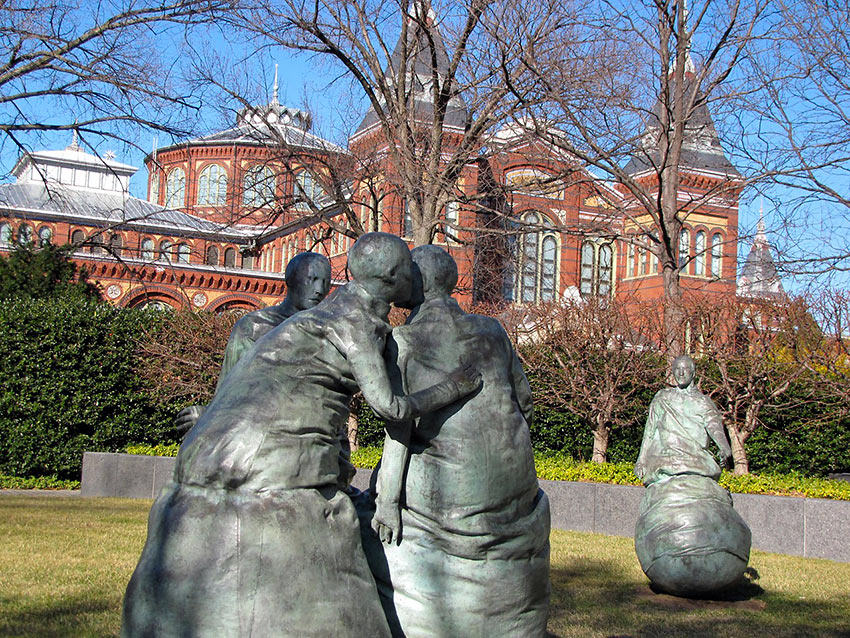
Elving caught my attention a while back when an NPR correspondent described newly elected Arizona Senator Kyrsten Sinema as a moderate. Elving went that foolishness one better, calling Sinema a progressive. As Howie has pointed out, when Sinema was in the House she had the worst voting record of any Democrat. Sinema, a bought and paid for Wall Street minion, was chair of the Blue Dogs. Would someone please explain to Ron Elving that the Blue Dogs are not a posse of progressive pooches? And perhaps NPR analysts might want to study up on the analyses of Progressive Punch, which awards Sinema an F as she battles it out with Nevada’s Jacky Rosen for worst Democrat in the Senate. Spell-check keeps changing Sinema to Cinema. Perhaps it’s right. Her image embraced by NPR is quite a show.
NPR’s bias drifts about. In December I watched a seminar, “Undermining the Courts and the Media: The Consequences for American Democracy” at the National Press Club. Bob Garfield, a host of NPR’s “On the Media” was the moderator of a panel of journalists. About five hours and eight minutes into this video, here’s Garfield. “As an institution, we are almost as equally distrusted by the Left. I mean, there is nothing quite like the lip curl of a Bernie Bro using the words mainstream media. I mean, it’s really such a sight to behold. Because obviously we are just such whores to The Man…. especially the Times, James, I mean, what does your inbox look like? …Your job is to have a diversity of opinion and balance and yet you have to deal with these sometimes quite astonishing accusations that you are just a shill for big capital or you name it.”
With his affinity for lip curls, I’m surprised Garfield didn’t just reveal Bernie as Snidley Whiplash. I’ll resist the temptation to mention the Times drumbeat to invade Iraq, its continued backing of the mythology that Clinton’s repeal of Glass-Steagall had nothing to do with the economic debacle bequeathed by bankers behaving badly, and the gatling gun Times columnists trained on Bernie during the 2016 primaries. Well, my resistance is weak.
To his credit, James Bennet, now editor of the Times editorial page, said a lot of the criticism is deserved, and that the editorial page needs to have its feet held to the fire, that it aims to have a wide variety of opinions needed while arguing its way toward the truth at a time a lot of big questions are in play, and conventional answers aren’t adequate. A number of the journalists’ comments on challenges facing journalism are worth a listen.
Is “On the Media” looking for topic suggestions? Probably not this one. How about a serious soul-searching on the bias of mainstream media, including NPR, specifically against Bernie during the 2016 primaries? And maybe keep an eye on it during the 2020 primary season. Have Thomas Frank on as a guest, revisiting the points he made about he Washington Post and other media coverage of the 2016 primaries in his excellent Harper’s essay, Swat Team, by Thomas. It ought to be required reading for journalism students rolling the dice that a career might await. WaPo is already preparing its editorial gauntlet for Bernie. Here’s a silly early entrant, pushing the notion that Bernie was a flash in the pan Bernie, your moment has come — and gone. After Amazon had to pony up 15 beans an hour, is the world’s richest man running scared from Bernie?
I imagine we’ll see NPR – including focused shows like “On the Media” and “1A, Speak Freely” – honestly tackle that topic about the time we’ll see in-depth coverage of the proposals for anti-boycott laws that seek to throw America’s First Amendment under the bus on behalf of a foreign power. Or for that matter, on the systematic repression, often violent and sometimes fatal, of Palestinian journalists, as the American government averts its gaze and opens its treasury to unquestioned support of Israel’s far and farther right.
Appropriately, NPR never misses the chance to mention the Saudi assassination of journalist Jamal Khashoggi. It does miss the chance to discuss the Israeli spy technology the Saudi regime uses to monitor dissidents like Khashoggi. Selective critiques are the difference between earning sanctioned merit badges and attempting a journalistic profile in courage.
Bernie is more apt to call Middle East injustices as he sees them, which is a profile in courage by Washington standards. It earns him the ready-made enmity of groups that want no such clear-eyed views and that seek to marginalize him. Other groups that realize Bernie is as unbuyable as the late Wisconsin Senator Willam Proxmire was also want to define Bernie in ways that diminish him. They know people who can’t be bought pose a danger. Bernie’s deep in the pockets of hordes of small donors. Pretty damn dangerous, that.
Irritation by NPR’s political coverage of the 2016 primaries prompted this piece: Reflections on an Election Year When It Finally Hit the Fan.
Here’s a couple excerpts relevant to NPR:
“Frustrations on the coverage of the Democratic primaries have been slow-cooking quite awhile. Not just with the networks, I’m also looking at you, National Public Radio. Does NPR have a clue as to how badly it’s damaged its brand from reporters and commentators chirping regurgitations of Hillary talking points from the outset? For that matter do the NY Times and the Washington Post? They’ve sounded so long like self-appointed gatekeepers, queen-makers, charges of media malpractice now abound. Now brace for articles, already appearing, on how Bernie blew it, too little too late. Never mind media putting him in a box and for so long paying scant attention beyond socialist snowball in hell status.
We can take solace that the public’s collective tin ear to media fixes is well on its way to repair, but that doesn’t cure the frustration. I listened to NPR’s Scott Simon Saturday, interviewing (lecturing) RoseAnn DeMoro, executive director of National Nurses United, over her group’s support of Bernie Sanders.
Ms. DeMoro acquitted herself well, plowing past Simon’s condescending entreaties to party unity, to getting the inevitability of math, to what’s really practical for health care in the political system, and to every other point he could squeeze in to call the game before the clock runs out. In his mindset there’s only one game in town. Never mind pushing the party where it needs to go, never mind concern over game-changers that might wait in the wings. But I assure you in Washington there’s ample trepidation over what might next waltz out of the wings, and on its impact on voter turnout for down-ballot races.
Simon’s comments typify the drumbeat to make Bernie the fall guy for Hillary’s troubles. Apparently it’s now against the law to point out that occasionally the empress strolls buck-naked. And the commentariat now infuses Bernie with mystical powers to demand his supporters rise up for Hillary. If not, Bernie’s fault Hillary loses…
…Here’s a thought. If you want Bernie’s supporters to come around for Hillary, quit trying to stifle their voice at every opportunity, quit telling them from the outset their aspirations are hopeless, their efforts pointless, that they’re naive as to what’s possible, that if we end up in Trumpville it’s their fault for not folding early.”
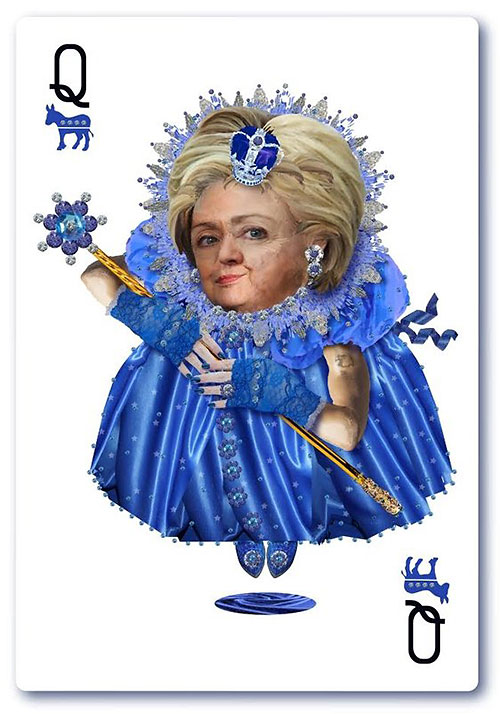
Fortunately, the unwavering support of media champions like Simon glided Hillary over the top and into the White House.… What?
I’ve been wondering what fears and long term bets resonate at NPR during these days of shifting political fortunes, what it looks for when it looks over its shoulder.
Elliott told me, “In the mid-1990s, some NPR editors were worried about being perceived as ‘too liberal.’ Newt Gingrich was speaker of the house, and he was harassing NPR. If I remember correctly, Gingrich was threatening to cut off federal funds for NPR and asked the network to produce a list of all its employees who had previously worked for Pacifica radio stations. NPR refused to honor his request.”
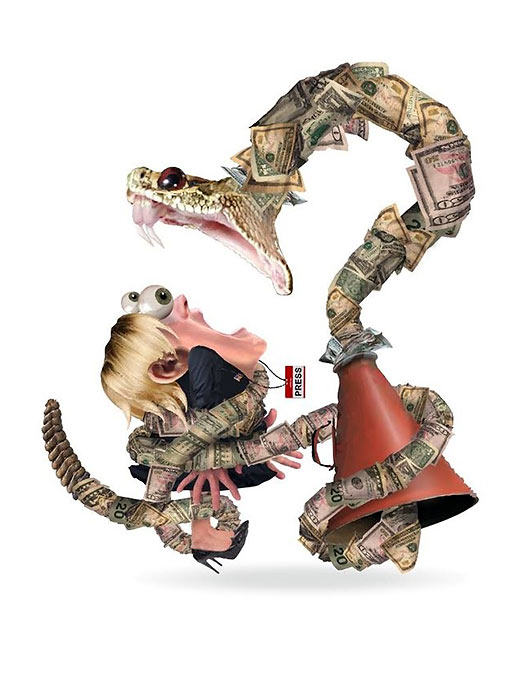
Well, good for NPR on that refusal. But another topic for “On the Media” might be the influence of NPR donors, including donor demographics and particularly corporate donors, on topics and coverage.
Personally, I’d like to see increasing government funding of public radio that strengthens confidence in the independence of its political reporting. But until my confidence returns, I’m just glancing online to see if there are offerings of interest, usually arts and culture and science. Otherwise I’m spending more time perusing the BBC and Pacifica. And with apologies to Garfield, what I might call alternative media.
I thought it quite telling that NPR didn’t bother to cover Bernie’s town hall on inequality last Spring, with guests including Elizabeth Warren and Michael Moore. Despite an overflow crowd and nearly two million watching online, it got the NPR cold shoulder. It was held in the US Capitol building, a short walk from NPR headquarters.
To be fair, it was a crowded news day at NPR. A gorilla in Philly walked upright to keep his hands clean. You can still catch “Inequality in America: The Rise of Oligarchy and the Collapse of the Middle Class.”
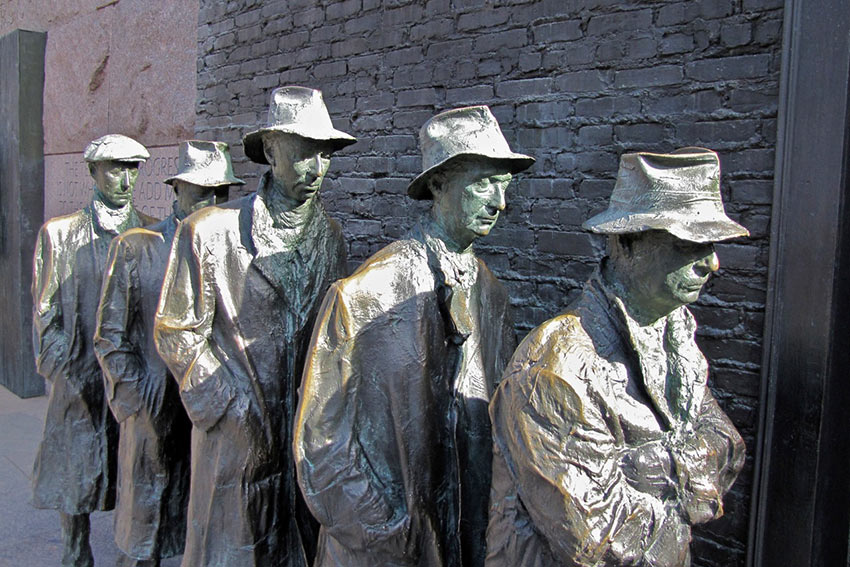
Voters in the 2020 primaries, from the early states like Iowa to the ones that ice the cake, are well-advised to be as judicious parsing for objective news sources, and as wary of media herd instinct, as they are selecting their preferred candidates.


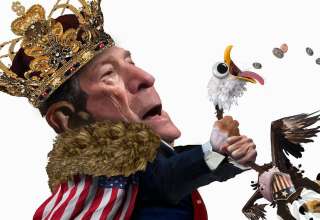



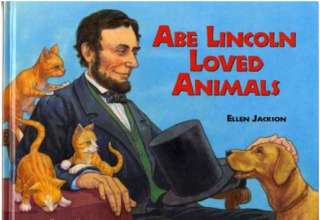
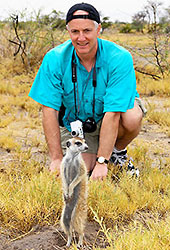 Growing up in Kansas, Skip Kaltenheuser was tuned to travel by a traveling salesman father’s pedal to the metal vacations. He extended his reach with travel writing, and efforts such as supervising elections and doing special projects. When they’re willing to slum with him, Skip’s favorite travels are still with one or both kids, now young adults, neither indicted despite living in Washington, DC their entire lives.
Growing up in Kansas, Skip Kaltenheuser was tuned to travel by a traveling salesman father’s pedal to the metal vacations. He extended his reach with travel writing, and efforts such as supervising elections and doing special projects. When they’re willing to slum with him, Skip’s favorite travels are still with one or both kids, now young adults, neither indicted despite living in Washington, DC their entire lives.













